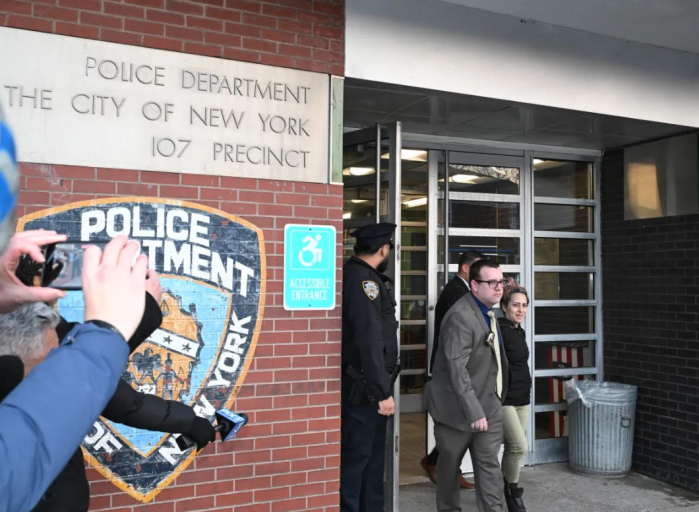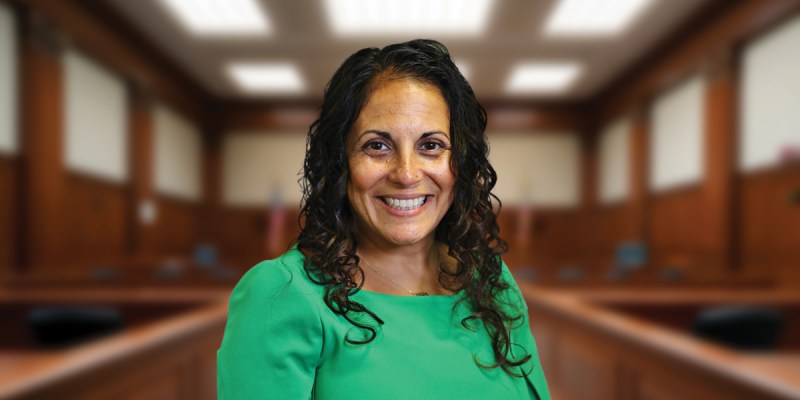By Courtney Dentch
Impending budget cuts were the issue of the day when parents from PS 206 met with elected officials at the Rego Park school’s second annual legislative breakfast Friday.
About 75 parents, officials, school board and community members attended the breakfast held by the school’s Parents Association. Parents voiced concerns about the proposed budget cuts, overcrowded schools and standardized tests in District 28, which covers Forest Hills, Richmond Hill, Rego Park and Jamaica.
State Assemblyman and keynote speaker Jeffrion Aubry (D-Corona), state Sens. Toby Stavisky (D-Whitestone) and Daniel Hevesi (D-Forest Hills), and City Councilwoman Melinda Katz (D-Forest Hills), spoke about surviving the budget crunch.
The mayor’s proposed budget cuts affecting both students and parents could exceed $400 million, including $350 million from schools and $80 million in day-care programs, Katz said.
PS 206 Student Council President Fayaz Lalani said the cuts would be bad.
“Teachers need to be paid and students need books,” he said. “Please do not cut the budget. Don’t take our money away.”
The cuts would not only affect learning but other services as well, such as guidance counselors and teachers’ aides, said Neil Kreinik, superintendent of School District 28. These cuts, in turn, affect the students’ education, he said.
“If a student acts up in the lunchroom and there are no lunch aides, that carries over to the classroom,” he said.
Aubry, who heads the Assembly’s Committee on Correction, which handles the state’s prison system, said a portion of the rising prison population could be attributed to academic failures.
“When we fight this fight, it isn’t just for today,” he said. “It’s for 10, 15, 20 years from now. If we don’t spend the money on schools now, we will later.”
Although everyone at the breakfast agreed more money needs to be spent on schools, the legislators cited the recession, partisan politics, and a court decision as reasons why the money is slow in coming.
The court decision in favor of the Campaign for Fiscal Equity said the state’s funding of public schools is unconstitutional because money had not been distributed equally to the the five largest cities for 20 years. The judge’s decision could cost the state billions in new funding. The state is appealing the court decision, Stavisky said, adding that if the decision is upheld, broad changes to the way the state funds public school system will be coming.
But parents are frustrated with waiting.
“I’m tired of the interim.” said Sophia King, whose second grader attends PS 206.
Despite assurances from the politicians that they understand the problem, they had few concrete answers for the parents.
“I know it’s not a great comfort for us to be able to articulate the problem,” said state Sen. Daniel Hevesi.
One thing the parents can do now is vote, Aubry said. Parents need to harness their collective power by voting as a bloc, he said.
“What controls the money, what controls the power is the political process,” he said.
Parents also need to be more involved with the school, Aubry said. Linda Glover, president of the Parents Association, said turnout should have been better.
“There should be someone here for every child in this school,” she said.
Aside from the budget, parents expressed concerns about school construction in Queens, which has the city’s most overcrowded schools.
Rick Wilson, a member of the school board, cited a construction project he bid on nine years ago. The project was completed three years ago, taking six years to finish, he said.
The problem, Hevesi said, is that projects get caught in the bureaucracy of the School Construction Authority. A strong leader for the SCA could help, Stavisky added.
“I am convinced that with the proper person we can control the SCA, if the will to curtail is there,” she said.
Standardized tests and excessive homework were also discussed. Parents worry the test standards may be pressuring the students.
“You set these standards,” said Cynthia Huggins, who has five children. “The kids are getting burnt out.”
Hevesi cited a lack of transition time as a cause.
“We may have phased in the standards too quickly, without providing funding for teacher training,” he said.
Despite the problems in the schools, legislators and parents praised PS 206 as an example of what schools could be.
“We know the system can produce good schools because there are good schools,” Aubry said. “The question is: How do we duplicate that?”
Reach reporter Courtney Dentch by e-mail at Timesledgr@aol.com or call 229-0300, Ext. 138.

































